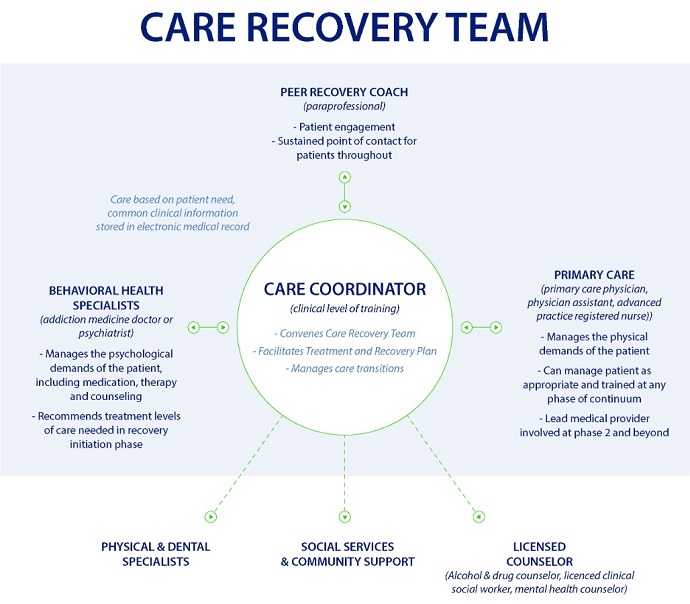Even when the advises subside and the client has actually effectively withstood the temptation to regression, additional yearnings regularly follow within days or hours. For customers whose desire to use compounds fades gradually, the danger of relapse stays high as long as other problems remain salient but the client has few or poorly developed coping abilities aside from escape through substance use.
This section will lay out methods of constructing these interventions into prepare for preventing customer relapse. Emphasis is positioned not just on the impact of regression on the customer's healing process, however likewise on the Have a peek here therapist and the social therapy procedure. By acknowledging in Addiction Treatment Delray advance that relapse can occur, a therapist presents the client with a practical image of the recovery process.

The therapist provides feasible hope of development and eventual success through the treatment collaboration, but likewise informs the customer that some aggravations, setbacks, and potentially episodes of relapse are unavoidable along the method. The therapist lets the customer know that expecting these possibilities will permit the client to be much better prepared to deal with them if they happen.
The therapist ensures the client that if regression occurs to happen, it can be utilized in therapy as a chance to discover more about personal strengths, restrictions, and requires. To maximize client participation, the therapist needs to take actions beyond merely specifying this acknowledgment to the customer. The therapist needs to even more ask about the client's reaction to the point of view on relapse just described. what is holistic treatment for drug addiction.
The Ultimate Guide To What Does Successful Treatment In Addiction Look Like
Note the importance of the therapist also accepting the likelihood of client regression. The assisting professions are swarming with unjust belief that therapy for disordered substance usage is largely unproductive because such customers can not or do not wish to change. Some other experts who decline this downhearted outlook and think that relapse does not equivalent failure of treatment still may encounter their own feelings of disillusionment when a client catches temptations to fall back into old behaviors.
Guidance can assist more recent or having a hard time therapists in working through their own resistances and in working https://diigo.com/0ijlnp efficiently with the hard dynamic of customer relapse. By motivating the client to report regression events or other factors to consider of acting counter to treatment goals, the stage can be set for utilizing therapy sessions to promote gaining from obstacles in addition to from successes.
When the possibility of relapse is confessed and an agreement to analyze any regression episodes is in location, the therapist remains mindful for emerging needs to resolve unfavorable ideas and sensations about relapse as they occur. The customer's point of view. From the client's viewpoint, anticipatory sensations range from extreme worries to arrogant overconfidence about abilities to resist regression (how much does addiction treatment cost).
Regarding a relapse that has actually currently occurred, customers may feel anything from intense guilt and embarassment to relief or resignation related to resuming compound usage. While some customers openly acknowledge a relapse, other clients who have concurred in advance to report a regression still think twice to confide about an incident once it has in fact taken place.
The 20-Second Trick For Places Where Addiction Gamblers Who Have Received Treatment Can Receive Help
Taking care not to assume a regression has in truth occurred, the therapist can notice aloud the difference in the client's presentation and reveal curiosity, welcoming the client to elaborate on its significance. The therapist who frequently checks in with the customer to ask about any substance use since the last therapy session offers a context in which a client who hesitates to bring up the subject can be triggered to share details.
As the therapist explores client product that appears unclear, incredibly elusive, abnormally emotion-laden or puzzling, it is very important to keep in mind that pressing customers to confess relapses they have not yet acknowledged seldom assists. Utilizing open questions that avoid presumptive phrasing is most likely to generate appropriate content from the client. When a client reports a regression, either by self initiation or in reaction to the therapist's expedition, the therapist first uses assistance by restating unconditional acceptance of the customer along with curiosity about what can be learned from the occurrence.
Compassionate listening will assist the therapist maintain connection at such hard times, and likewise help examine how the customer is really reacting to the relapse. Relapse prevention preparation continues from this point to incorporate analysis of the regression experience and to apply findings toward treatment objectives. Analysis of the lessons found out from a relapse is most useful when the therapist can get an accurate reading of the client's emotion following regression.
A shame-ridden client can be reminded that while his feelings are understandable unpleasant, it is crucial not to forget progress he has actually already made, in addition to the remaining capacity for additional progress. The client involved anger that she bothered to attempt therapy when this regression shows she was simply setting herself up for yet another failure can be prodded to remember factors for looking for and attending treatment prior to this regression (how to open an addiction treatment center).
The Main Principles Of How To Treatment Drug Addiction

In each case, the therapist will probably recommend a review of the treatment strategy, specifically the provisions for relapse avoidance - what order do you do addiction treatment. The therapist even more figures out with the customer whether some revision of the plan is needed based on inbound information. The therapist's point of view. In addition to helping the client address feelings about a relapse and its impact on treatment motivations, therapists also experience their own strong affect at points of client relapse.